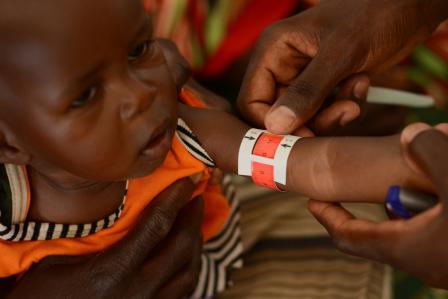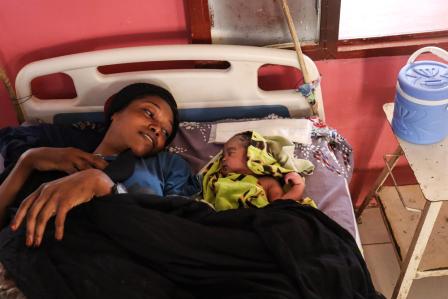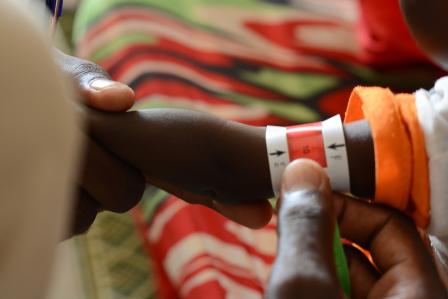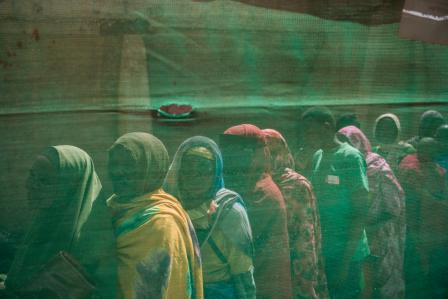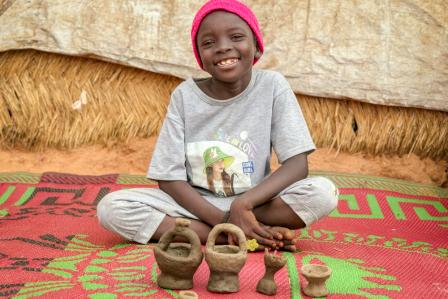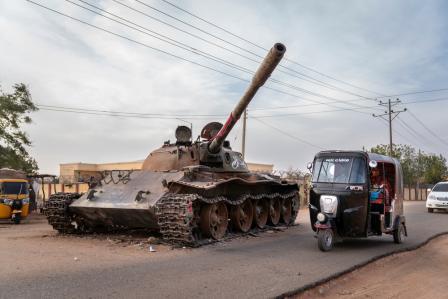Sudan: “In Jebel Marra, we face the indirect effects of this terrible escalation”
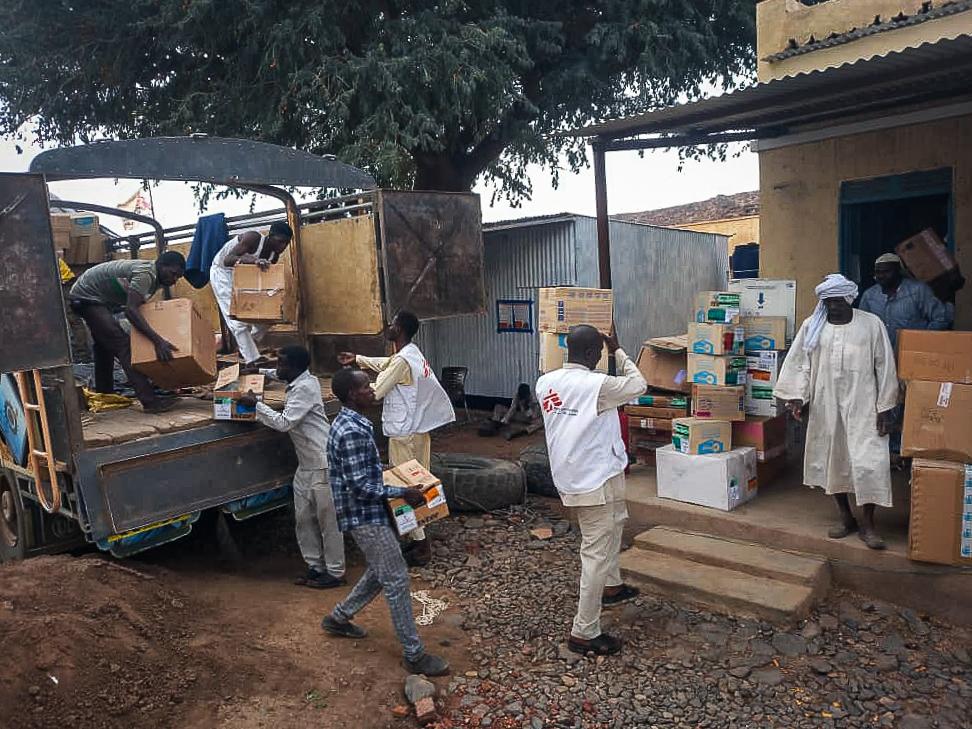
On 12 May Doctors Without Borders succeeded to bring in fresh supplies from El-Fasher, North Darfur to Doctors Without Borders supported Rokero hospital. Sudan, May 2023. © MSF
Since the escalation of violence in many parts of Sudan on 15 April 2023, Doctors Without Borders / Médecins Sans Frontières (MSF) continues to provide medical humanitarian assistance in six states in the country. In Rokero and Umo, in the mountainous region of Central Darfur state called Jebel Marra that has suffered through decades of conflict, neglect and exclusion from services. Our remaining teams do have very limited options to refer patients for higher levels of treatment. This is due to the ongoing fighting, either because hospitals are no longer functional, or roads are too insecure and getting staff and supplies in remains a concern.
In 2020, Doctors Without Borders upgraded the so-called rural hospital in Rokero town to a specialist healthcare facility serving a population in two localities of more than 250,000. We manage the inpatient department, emergency room, therapeutic feeding centre, maternity and delivery wards and the observation room. Our teams continue to assist around 10 deliveries every week and receives patients coming from town and the surrounding villages with an average of 5-15 new admissions per day including referrals from our supported community programmes. We do emergency referrals to the currently only still accessible hospital in Golo town in Jebel Marra with some surgical capacity. In 2021, Doctors Without Borders also ran an emergency mobile nutrition programme targeting 20 villages and treating more than 500 malnourished children.
Doctors Without Borders project coordinator Nkemju Rosevelt together with Sudanese and international colleagues took the difficult decision to leave the project recently. It was a seven-hour drive, through insecure terrain, from Rokero to El Fasher, the capital of North Darfur, which had recently been much affected by fighting. From there they flew out to Chad and on to Nairobi, Kenya. Below, Nkemju, while on his way home to Cameroon, reflects on his experiences in the conflict-stricken country.
“I was in Rokero when the situation changed all over Sudan. We did not really expect this extreme escalation of violence. As a project coordinator along with my team, we had put in place contingency plans to ensure the security of our staff and patients, and to be able to assist in times of violence and insecurity.
What happened was far beyond what we had anticipated. While Rokero remains stable and calm, all the main cities in Darfur, like El Fasher, Nyala, El Geneina, Zalingei, Tawila and Kabila, as well as their surrounding areas, were caught up in heavy fighting, killing hundreds and injuring many more.
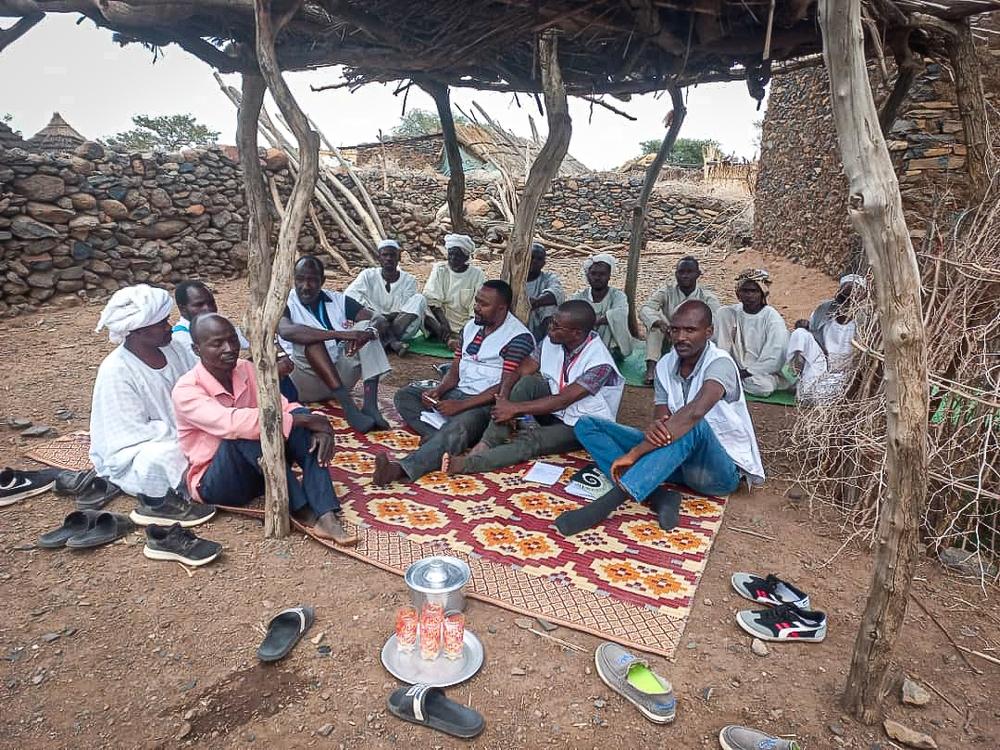
Doctors Without Borders community engagement PC Nkemju Rosevelt and team, meeting with elders/leaders in village in Jebel Marra. Sudan, March 2023. © MSF
It was a tough decision to relocate and evacuate members of our team from the area. Before we arrived, most areas in Jebel Marra had been cut off from healthcare and other essential services for more than a decade, and in some in rebel-controlled areas for almost two decades.
We left behind a skeleton team of dedicated and experienced Sudanese colleagues, some of whom are from Rokero, and others who are from parts of Darfur. They continue to do an incredible job, working hard to maintain the hospital services in Rokero and primary healthcare activities in Umo, and working in remote villages through MSF trained community health workers.
In Rokero, we faced the indirect effects of this terrible escalation. Although the area is calm, our team there is still dealing with multiple challenges as a result of the violence. Food, medication, as well as fuel to run generators or vehicles, aren’t getting in easily. In addition, bringing staff in and out to support and referring patients in need of surgeries is extremely difficult, as the road out of town remains dangerous.Nkemju Rosevelt, project coordinator
As a project coordinator, it is difficult to deal with such an uncertain and fast-changing situation, as we don't know what is going to happen next and how best to plan ahead for our team in Rokero, for our patients and the communities we are there to assist. Thus, we had to evacuate our international colleagues, and the Sudanese colleagues who were from other parts of Sudan, while some Sudanese colleagues chose to stay and continue our work. And it is hard for patients and communities due to the fear of the unknown in an atmosphere of uncertainty.
Increasing numbers of people who are fleeing from urban areas like El Fasher, Zalingei, Khartoum, are arriving to Jebel Marra. They arrive on commercial trucks with nothing, having escaped extreme violence.
We are running the only specialist healthcare facility for people from both the Rokero and Umo localities, where more than 250,000 people are living. It was a very difficult decision for us and an emotional moment for the communities, who expressed how they did not want to lose our services.
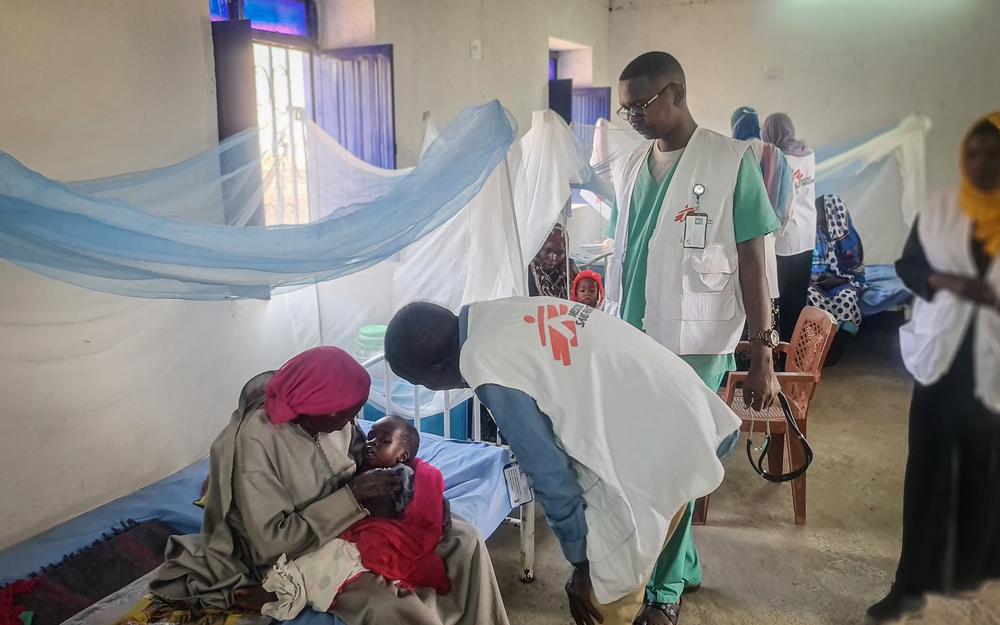
Doctors Without Borders built new emergency room, maternity, paediatric wards, and observation room and Intensive Therapeutic Feeding Centre at the only secondary healthcare facility in the locality in north Jebel Marra. Sudan, May 2023. © MSF
People there still remember the pain they went through, when sick and wounded people had to be carried on donkeys for days to Tawila and El Fasher, and many died of preventable conditions due to the long distances they had to travel in search of healthcare. Rokero has experienced frequent flare ups of fighting. In November 2022, while fighting broke out in the town, we treated more than 50 trauma patients.
Women, men, community leaders and elders and former patients pleaded for us to stay. Some community leaders came to me directly to say that they would guarantee our safety. Jebel Marra has always been fragmented by different rebel or armed groups. But they all committed to overcoming their differences, acknowledging that not having access to healthcare would be more fatal to the community than any violence itself.
The number of deaths among pregnant women and new mothers is high in Darfur. Some women lose their babies in the first trimester of their pregnancy because they ride donkeys or have to work extremely hard, tending to both the fields and their children. Most people here are farmers, growing sorghum and millet, but years of conflict and the recent escalation have frequently disrupted farming activities, leaving families without their crops or with a poor harvest. Most people can barely afford two basic meals a day.
I remember in July 2022, there was a huge malnutrition crisis. We travelled into the villages in the mountains with mobile clinics to treat children who were in deplorable conditions. We brought the most severely sick children to our therapeutic feeding centre and treated many in the villages.
It has been very emotional and difficult for those of us who left. We wanted to stay, but we could not ensure the safety of the whole team. I speak daily with our Sudanese colleagues in Rokero to understand what is happening. I feel relieved to know that they are doing well and continue their amazing work supporting the communities there.Nkemju Rosevelt, project coordinator
Doctors Without Borders supported facilities continue to provide life-saving medical care in El Fasher and Zamzam camp, North Darfur, in Kreinik, West Darfur, in Rokero and Umo, Central Darfur, in Khartoum, in Al-Jazeera, in Um Rakuba and Tinedba, El-Gedaref, and in Ad-Damazin, Blue Nile states. Doctors Without Borders first worked in Sudan in 1978, with an uninterrupted presence since 2003 to provide life-saving medical care to people who need it most.


